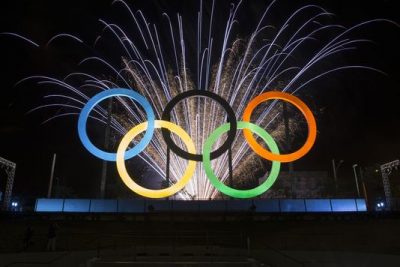


“May joy and good fellowship reign, and in this manner, may the Olympic Torch pursue its way through ages, increasing friendly understanding among nations, for the good of a humanity always more enthusiastic, more courageous and purer. “
Olympics have always been hailed as an event that unites people across the world. It is a common platform where athletes from every nook and corner of the globe come together to give viewers a surreal experience. It is hence imperative that being the quadrennial Olympic host is a tag that each country’s official and even citizens strive for.
The selection of the host city is done by the International Olympic Committee 7 years prior to the event. This is testament to the intense level of planning and commitment expected from an event of such high grandeur. Different countries place their bids in an effort to enter the elite list. Out of these, International Olympics Committee selects one after careful deliberation that spans across 2 years involving multiple board meetings with top ranking officials.
The hosts get a chance to create a global recognition for themselves with over 10,000 athletes representing more than 200 countries, 300 individual events in 28 different sports, over 10 million tickets sold to spectators, and a worldwide television audience in the billions. The “Olympics legacy” that gets tagged along with the city name begets improvement in infrastructure and increased trade, foreign investment. It is a regular trend that the host city records an increase of 35% tourists for the subsequent 4 years. The advertising revenue generated through various bulletins and billboards throughout the stadium adds to the revenue opportunities.
However, with increasing number of developing countries bidding for the right to host the Games, economists are concerned regarding the cost and benefits differentiation.
In majority of cases circa Beijing or Rio, hosting the Olympic have proven to be a loss making venture for the country.
The operational challenge of running a mega event creates intense logistical, security, and financial pressures. IOC requires that the host has a minimum of 40,000 hotel rooms available for spectators and an Olympic Village capable of housing 15,000 athletes and officials. Also, the uneven sharing of revenue between IOC and the host city hinders the host’s chance to reap the maximum benefits. Television rights have represented nearly half of total revenues with the IOC sharing less than 30 percent of the total with the local Organizing Committees. Revenues from international sponsors are also split.
The recent example is of Rio where recession is plaguing the economy and people are struggling to fulfil basic needs. In these hard times, allocation of $10 billion from government funds to Olympics have created mass uproar and protests.
Many prominent Economists including former IOC consultant and Harvard Business school alumni Chris Dempsey are propagating change in the revenue distribution model to reduce the losses that a country has to bear.
They also want the IOC to re-evaluate the rule of changing the host for every Olympics. The major hindrance is the obsolescence of the stadiums that are built especially for the Olympic Games and have no economic benefits thereafter and incur heavy restoration costs.
Even though it is not economically viable, many countries still associate hosting Olympics with global recognition. Research also suggests that hosting a major event creates a sense of joy in its inhabitants.
The time has come for IOC to reshape the policies so as to make it an all-round profitable venture for all stakeholders. Because as of now, hosting the Olympics does have its benefits. It is just not economic in nature.
Ashish Kumar Jha is a first year student at IIM Rohtak and a member of the PR Cell IIM Rohtak. He is an IT engineer from V.C.E.T., Mumbai and has 28 months of work experience at TCS.